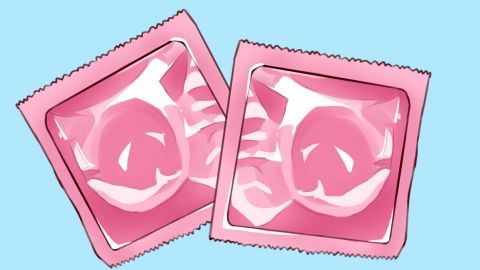Is it safe if a condom slips off halfway?
In general, if a condom slips off halfway but there is no contact with semen and the incident occurs outside the woman's ovulation period, it may be considered safe. However, if there is contact with semen or the event occurs during the ovulation period, it is considered unsafe. If in doubt, it is recommended to seek medical advice promptly. Detailed analysis is as follows:

If the condom slips off halfway before ejaculation occurs, or if it is withdrawn immediately after ejaculation without any semen spilling onto the external genitalia or vaginal opening, and the incident occurs outside the female ovulation period (approximately one week before or after menstruation), it may be considered safe. In such cases, there is no risk of semen entering the vagina, and the likelihood of conception is low. Maintaining proper hygiene afterward is sufficient, and excessive concern is unnecessary.
However, if ejaculation has already occurred when the condom slips off, especially if semen spills and comes into contact with the external genitalia or vaginal opening, or if the incident occurs during the ovulation period (around 14 days before the next menstrual period), it is considered unsafe. Sperm from the semen may enter the vagina and fertilize an egg, increasing the risk of unintended pregnancy. Additionally, incomplete protection may increase the risk of sexually transmitted infections (STIs), so caution is advised.
Upon discovering that the condom has slipped off halfway, check immediately whether semen has made contact. If there is potential risk and pregnancy is a concern, emergency contraception can be taken within 72 hours. For future intercourse, ensure the condom is properly worn, fully covering the penis throughout, to minimize safety risks.







